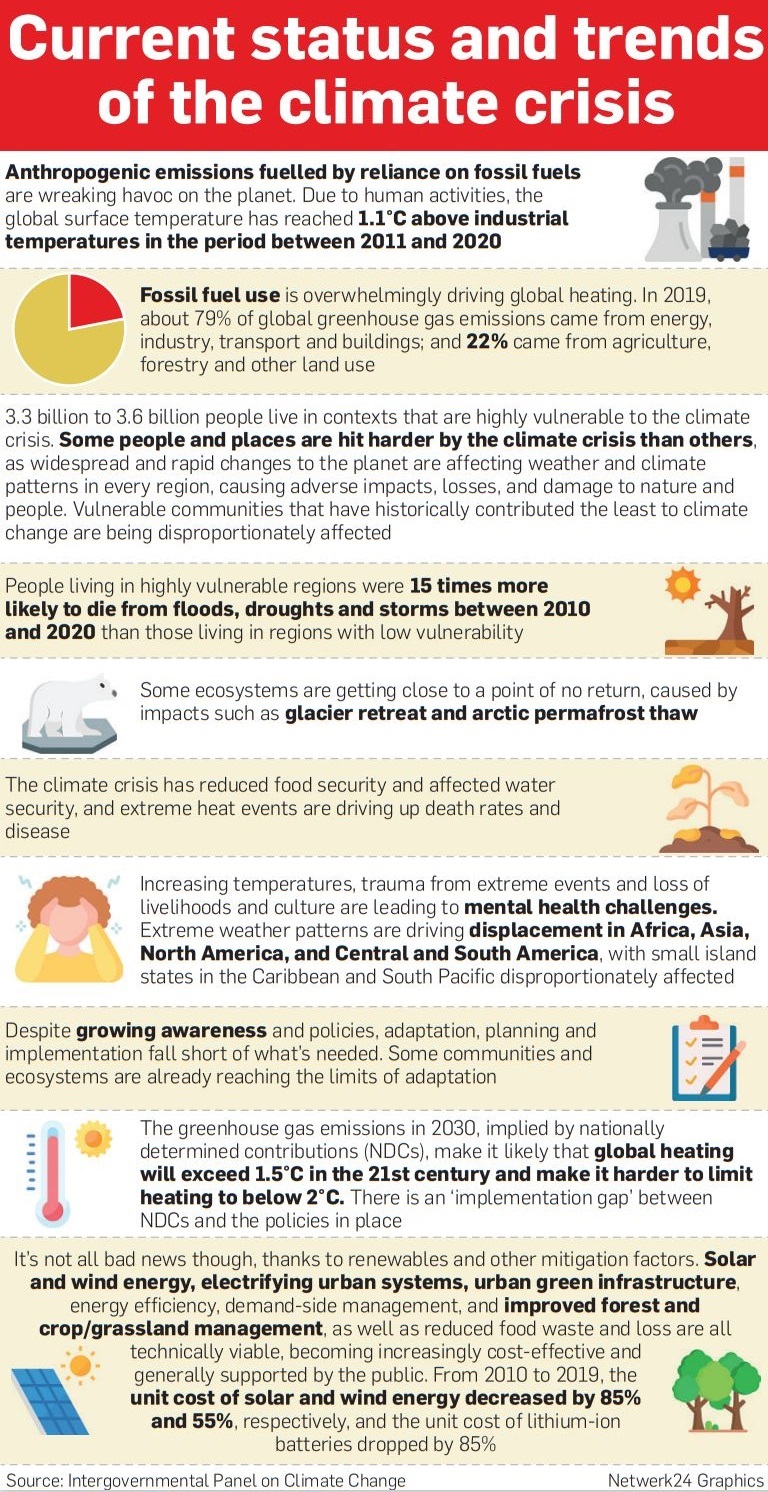
Available public- and private-sector finance for fossil fuels is still greater than funding available for climate adaptation and mitigation.
This is according to the Intergovernmental Panel on Climate Change (IPCC), a UN body for assessing the science related to climate change. The panel released its synthesis report last week in Interlaken, Switzerland.
The report stated that an overwhelming majority of tracked climate finance was directed towards mitigation, but still fell short of the levels needed to limit global warming to below 2°C or 1.5°C.
“Adaptation has limits in how much it can protect us from losses and damages,” the IPCC stated, “but the world has been altered enough for adaptation to be prioritised alongside rapidly reducing emissions.
The UN has warned that the climate time bomb is ticking, with the rate of temperature rise in the past half-century the highest in 2 000 years and the concentrations of carbon dioxide at their highest in at least 2 million years.
The IPCC stated that, if climate goals were to be achieved, both adaptation and mitigation financing would need to be increased substantially.
“There is sufficient global capital to close the global investment gaps, but there are barriers to redirecting capital to climate action,” read its report.
These barriers were in the context of economic vulnerabilities and indebtedness facing developing countries.
READ: SA’s climate policies not stringent enough for proper transition
“Reducing financing barriers for scaling up financial flows would require clear signalling and support by governments, including a stronger alignment of public finances in order to lower real and perceived regulatory, cost and market barriers and risks, and improve the risk-return profile of investments.”
At the same time, it stated, financial actors – including investors, intermediaries, central banks and regulators – could shift the systemic underpricing of climate-related risks and reduce sectoral and regional mismatches between available capital and investment needs.
The IPCC reported that average annual modelled mitigation investment requirements for 2020 to 2030 in scenarios that limited warming to 2°C or 1.5°C were a factor of three to six times greater than current levels.
“Total mitigation investments (public, private, domestic and international) would need to increase across all sectors and regions. Even if extensive global mitigation efforts are implemented, there will be a need for financial, technical and human resources for adaptation,” it stated.
International cooperation was a critical enabler for achieving ambitious climate change mitigation, adaptation and climate-resilient development, it added.
READ: Emerging markets need climate cash: How will they get it?
Climate-resilient development is enabled by increased international cooperation, including mobilising and enhancing access to finance, particularly for developing countries, vulnerable regions, sectors and groups and aligning finance flows for climate action to be consistent with ambition levels and funding needs.
“Enhancing international cooperation on finance, technology and capacity-building can enable greater ambition and act as a catalyst for accelerating mitigation and adaptation, as well as shifting development pathways towards sustainability.
This includes support to nationally determined contributions and accelerating technology development and deployment,” stated the IPCC.




 Publications
Publications
 Partners
Partners










